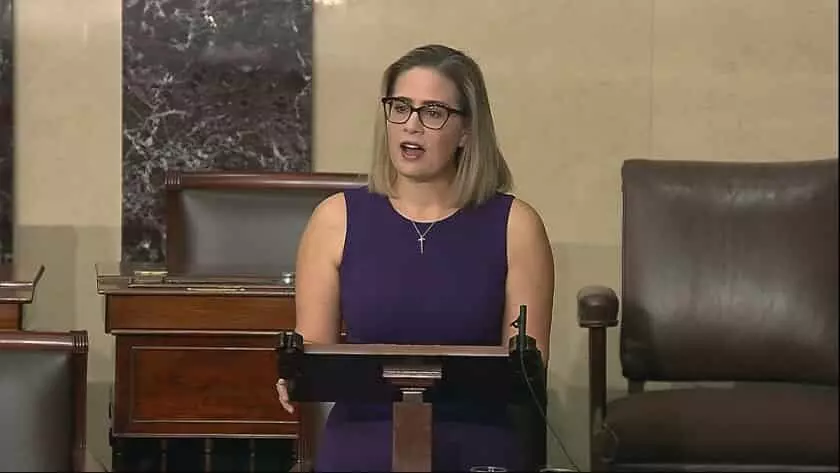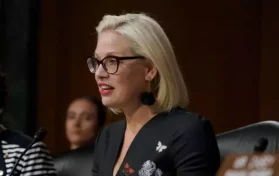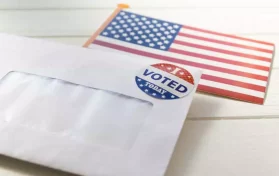
Just last week, the Biden Administration announced its push for two voting rights bills that they said would decrease the chance of voter intimidation and voter fraud. Critics said that the legislation would federalize elections and allow for an increase in election fraud. President Joe Biden and Vice President Kamala Harris flew down to Atlanta to announce their support for the Freedom to Vote Act as well as the John Lewis Voting Rights Act, where they spoke to constituents and placed a wreath on the tomb of slain civil rights leader Dr. Martin Luther King, Jr. Even so, two Senators posed a strong danger to either of the bills being passed.
Both Kyrsten Sinema (D-AZ) and Joe Manchin (D-WV) have long stated their stance against changing the rules of the Senate. Democrats knew with a razor-thin margin in the Senate, they would need to exercise the “nuclear option,” which would change the number of votes needed to pass a bill. At present, a bill must have at least sixty votes to be considered passed in the Senate. Changing the rules – which has been debated in the past when Republicans held a slim majority in the Senate – has long been debated by members of the Senate, but cooler heads have always prevailed so that the sixty-vote threshold remains the same.
Although both Manchin and Sinema have said that they support certain elements of both voting bills, they both stated that they would not vote to change the rules of the Senate which would change the way debate is held and would allow for a simple majority vote.
The nuclear option vote failed by a measure of 52-48. Both Manchin and Sinema voted with their Republican colleagues to prevent a change to the Senate procedures.
After the vote, Senate Majority Leader Chuck Schumer (D-NY) took to the Senate floor on Thursday to address the vote’s outcome. “A few hours ago this chamber, with the eyes of the nation upon it . . .took a vote to move to final passage on the Freedom to Vote Act and the John Lewis Voting Rights Advancement Act. It received fifty votes, and with the vice president we would have had a majority. Even if you think the filibuster is a good thing, is it protecting voting rights, and preventing their diminution more important?”
The nuclear option which the Democrats voted on Wednesday night would have only applied to the voting rights bills to be voted on Wednesday night. However, both Manchin and Sinema – who have as of late been a proverbial thorn in the side of their Democratic colleagues – who stymied the vote on the election bills.
Last week, Kyrsten Sinema took to the Senate floor to show her opposition to the use of the “nuclear option” in order to force the passage of the bills. Sinema said that the bills only “treat the symptoms of the disease, but they do not fully address the disease . . .And while I support these bills, I will not support separate actions that worsen the underlying disease of division affecting our country.”
Senator Joe Manchin had previously told reporters that while he supported some provisions in the voting bills, he did not support resorting to the nuclear option to pass the vote.
Both senators have said in so many terms that doing so would set a dangerous precedent.
The attempt by Senator Schumer and Senate democrats to invoke the nuclear option is the third time such an attempt has been made in the last ten years. The late Harry Reid (D-NV) attempted to use it during the presidency of Barack Obama, and Mitch McConnell (R-KY) utilized the nuclear option to lower the filibuster threshold for Supreme Court nominees in 2017, when former President Donald Trump nominated Neil Gorsuch to the bench.
McConnell has said that current Majority Leader Schumer’s attempt to use the nuclear option is “a direct assault on the core identity of the Senate . . . (and would) kill the character of the institution he is supposed to protect and serve.”
McConnell also described the attempt by Senate Democrats as “a plot to break the Senate.”





